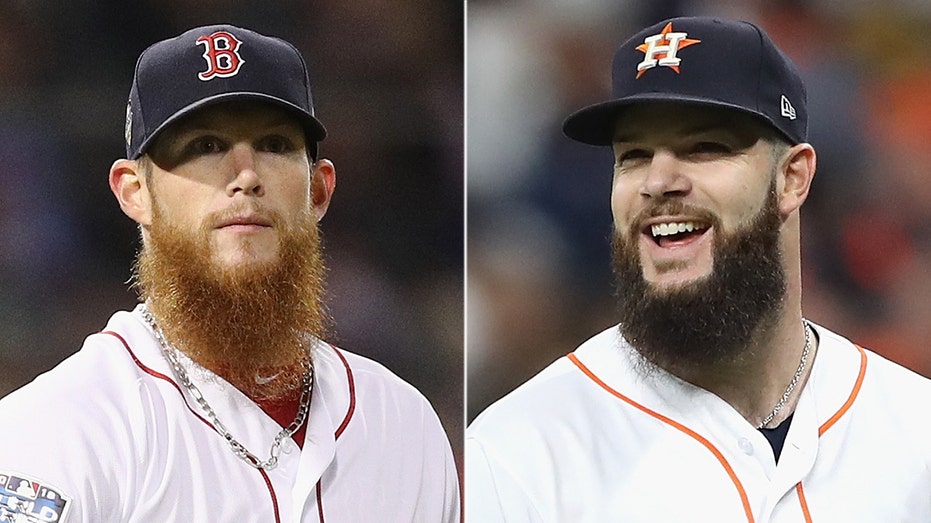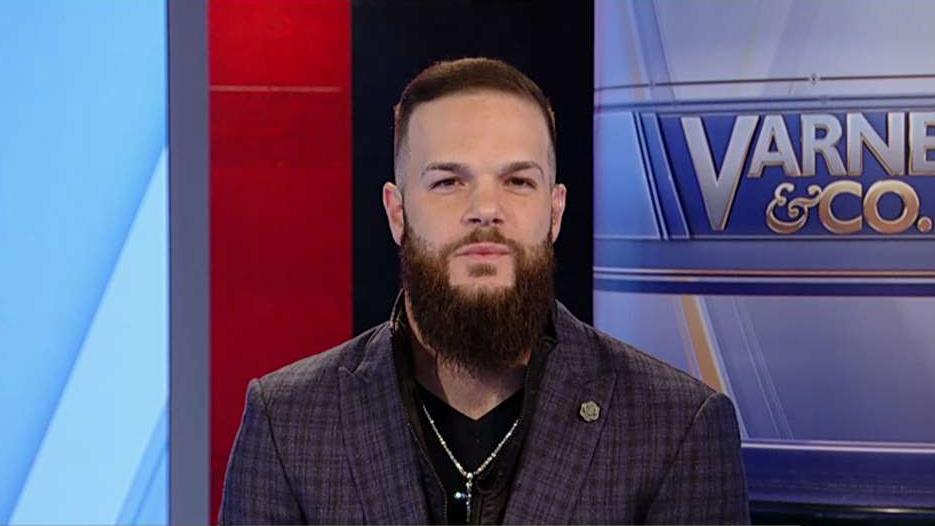Why MLB's free agent market collapsed despite record Trout, Harper contracts
Major League Baseball's opening day kicks off Thursday amid an uncertain financial climate for its players, following an offseason that produced a second straight decline in the league’s average salary even as top stars like Bryce Harper and Mike Trout signed massive contract extensions.
The average MLB salary was set to drop on opening day for an unprecedented second straight season, down to $4.36 million from $4.41 million, despite record overall revenues for the league as a whole, according to an Associated Press study. With first pitch just hours away, several star free agents, including former American League Cy Young award winner Dallas Keuchel and All-Star closer Craig Kimbrel, remained unsigned by MLB ballclubs.
Some baseball executives, including Houston Astros owner Jim Crane, have attributed MLB’s recent free agency slowdown to the rise of predictive analytics that have made many MLB front offices reluctant to shell out lucrative long-term deals to players whose production could decline as they age. But the sudden spending cooldown may have more to do with the way franchises are earning revenue, according to Stephen Walters, an economics professor at Loyola University in Maryland and consultant to multiple MLB teams.
“I think it's because an increasing share of industry revenue is being generated 'nationally' rather than ‘locally,'” Walters told FOX Business. “For example, every team gets its 1/30th share of the loot from the national TV contracts and web-based media whether they win 65 games or 95 games. So when those mid-tier players are on the market, teams will ask whether the extra wins they might add will really generate much added local revenue from tickets and concessions or not.”
This offseason proved that MLB teams are still willing to pay top dollar for free agents who combine strong production on the field with established national awareness among fans. Trout’s $430 million contract extension with the Los Angeles Angels set a new record for professional sports, while Harper’s $330 million deal with the Philadelphia Phillies and Manny Machado’s $300 million contract with the San Diego Padres also upended the high end of the market.

Free-agent pitchers Craig Kimbrel (left) and Dallas Keuchel (Getty)
But Keuchel’s and Kimbrel’s continued unemployment highlights a growing trend in MLB free agency, where players capable of All-Star output are signing deals much later in the offseason, for much less money than the market previously suggested – or not signing deals at all. The trend led MLB Players Association Executive Director Tony Clark to accuse teams of a “two-year attack on free agency” in a fiery statement in February.
Crane, the Astros owner, said in January that he doesn’t expect many players to receive the long-term deals that once typified MLB free agency in the future.
“I think that teams are very focused on value, and some of the deals that have been thrown out with Harper and Machado I think are long-term deals,” Crane said, according to the New York Post. “I don’t think that you’ll see too many more 10-year deals in this business anymore because the analytics are so good and a lot of those deals never work.”
The state of free agency is expected to be a major point of debate as player union representatives and MLB officials debate terms of a new collective bargaining agreement when the current deal expires in 2021. In the meantime, mid-tier free agents will likely struggle to find deals befitting their perceived value.
CLICK HERE TO GET THE FOX BUSINESS APP
“Unless a good-but-less-famous guy is the missing piece that will put a team across the threshold of a post-season slot, his market is likely to be a lot cooler: fewer bidders, lower prices,” Walters said.




















